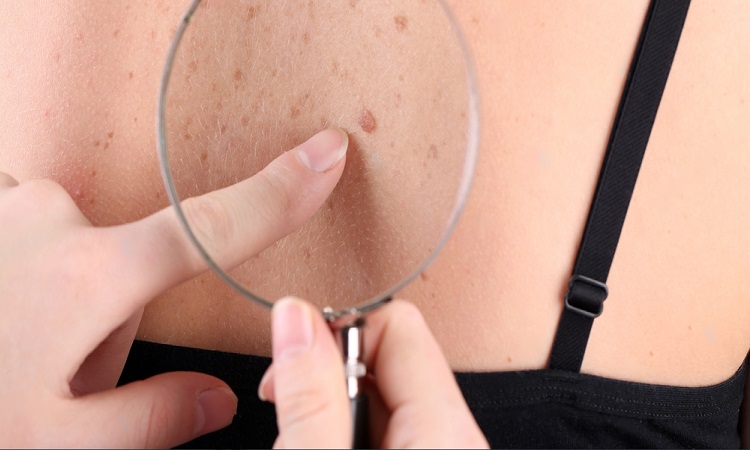If you have concerns that a skin spot might be something to worry about, you are not alone. Skin cancer is the most common cancer in the US, affecting one in five adults. Fortunately, diagnosing and treating skin cancer in its early stages can lead to complete removal.
What is Skin Cancer?
Skin cancer occurs when different types of skin cells start to grow abnormally. Basal and squamous cell carcinomas form in layers of the skin. Melanoma, the most dangerous form of skin cancer, forms in cells called melanocytes that produce pigment. As a result, melanoma skin cancers often look like oddly shaped, colored, or sized moles. Basal and squamous cell carcinomas can look like bumps, flaky patches, or sores. They may have an odd color, itch, or refuse to heal.




